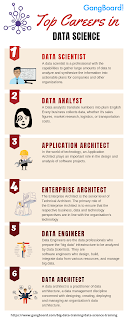Python - The "most powerful language"
Python is a truly wonderful language. When somebody comes up with a good idea it takes about 1 minute and five lines to program something that almost does what you want. Then it takes only an hour to extend the script to 300 lines, after which it still does almost what you want.
A Brief History of Python:
- Designed by Guido van Rossum
- Developed by Python Software Foundation
- Originated around 1990
- The latest release in Oct 2019
- Vast community support
·
What is Python?
Python
is an interpreted, object-oriented, high-level programming language with
dynamic semantics. It's high-level built-in data structures, combined with
dynamic typing and dynamic binding, make it very attractive for Rapid
Application Development, as well as for use as a scripting or glue language to
connect existing components together.
Python's simple, easy to learn syntax emphasizes readability and therefore reduces the cost of program maintenance. Python supports modules and packages, which encourages program modularity and code reuse. The Python interpreter and the extensive standard library are available in source or binary form without charge for all major platforms and can be freely distributed.
Python's simple, easy to learn syntax emphasizes readability and therefore reduces the cost of program maintenance. Python supports modules and packages, which encourages program modularity and code reuse. The Python interpreter and the extensive standard library are available in source or binary form without charge for all major platforms and can be freely distributed.
Why Python is so Special?
Python
offers several options to programmers in general and meets all their different
development needs. If they start with Python for any particular task or project, it is easier for them to jump or switch to any other task or project
even if it’s a totally different field or industry. This language can be used
for artificial intelligence & machine learning, data science, web
development, system operations, deployment, scientific modeling, server, and
administrative tools, and so much more.
But to your surprise, numerous developers don’t consider Python as their primary programming language because of the fact that it’s easy to learn and use, and they take Python as their secondary or third programming language.
Of course, thanks to all its features, today, various big names including Google, Amazon, Facebook and others are using Python for several of their applications.
But to your surprise, numerous developers don’t consider Python as their primary programming language because of the fact that it’s easy to learn and use, and they take Python as their secondary or third programming language.
Of course, thanks to all its features, today, various big names including Google, Amazon, Facebook and others are using Python for several of their applications.
What can Python do?
From myriads of things, some popular use of Python programming language are as follows:
From myriads of things, some popular use of Python programming language are as follows:
- Widely used for building and training artificial intelligence and machine learning algorithms.
- Can easily handle big data and perform complex mathematics.
- Widely used for data science-related tasks like data cleaning, data analysis & others.
- Used alongside software for creating workflows.
- Used on a server for creating web-based applications.
- It can connect database systems and can also read or modify files.
- Highly recommended for rapid prototyping or for production-ready software development.
Why Python?
It
is packed with several features that programmers love for their projects. Some
of which are listed below.
- Python is a cross-platform programming language i.e. it can be used for Windows, Linux, Mac, Raspberry Pi, and others.
- It has a simple syntax which is very similar to the English language.
- Thanks to its syntax, with Python, developers can write programs in fewer lines of codes than any other existing programming languages.
- Python runs on an interpreter system which allows developers to execute the code as soon as it is written or completed. This makes prototyping very quick.
- It can be treated in an object-oriented way, a functional way or a procedural way.
Python Frameworks:
Python frameworks have always been its pillar of
strength. The trio –Django, TurboGears, and Pyramid are instrumental in providing faster service, a
prepared arrangement for application development thereby lessening the lines of
code.
The coming year promises to have fruitful upgradations
to the 3 frameworks – newer libraries, plug-ins to leverage the potential of
this wonderful language and increase the user base, multi-fold. Let us have a a fleeting look at the trio and what is expected out of them in the year 2020:
- Django
- TurboGears
- Pyramid
Occupation Roles
- Programming Developer/Engineer
- Python Web Developer
- Data Analyst
- Data Scientist
- AI Engineer
- Simulated Intelligence Engineer
- Automation Engineer
How To Become A Python Developer?
Beginning
in the mission to turn into a python developer, you should adopt a structured
strategy to master every one of your skills. The following is the rundown for
the equivalent:
- Python Fundamentals
- Factors And Data Types
- Data Structures And Algorithms
- Circles, Conditional And Control Statements
- I/O Operations And Exception Handling
- Modules And File Handling
- Database Knowledge
Beginning
with Python fundamentals, you should master all these essential concepts which
resemble an establishment for any programming language.
After
mastering these concepts, you can pick a lifelong way for yourself and also
work to master every one of the skills expected to accomplish your objective.
- Web Frameworks
- Django Or Flask
- HTML, CSS
- MVC-MVT Architecture
- Server Side development
- Front end skills
- Content Writing
You can create GUI based applications or web applications as indicated by your specifications to master your skills.
- Towards Data Science
- Science And Statistics
- Libraries( Matplotlib, Numpy, Pandas, Seaborn)
- Data Visualization
- Understanding and Data Analysis
- Manipulation of Data
- Database Knowledge


Comments
Post a Comment